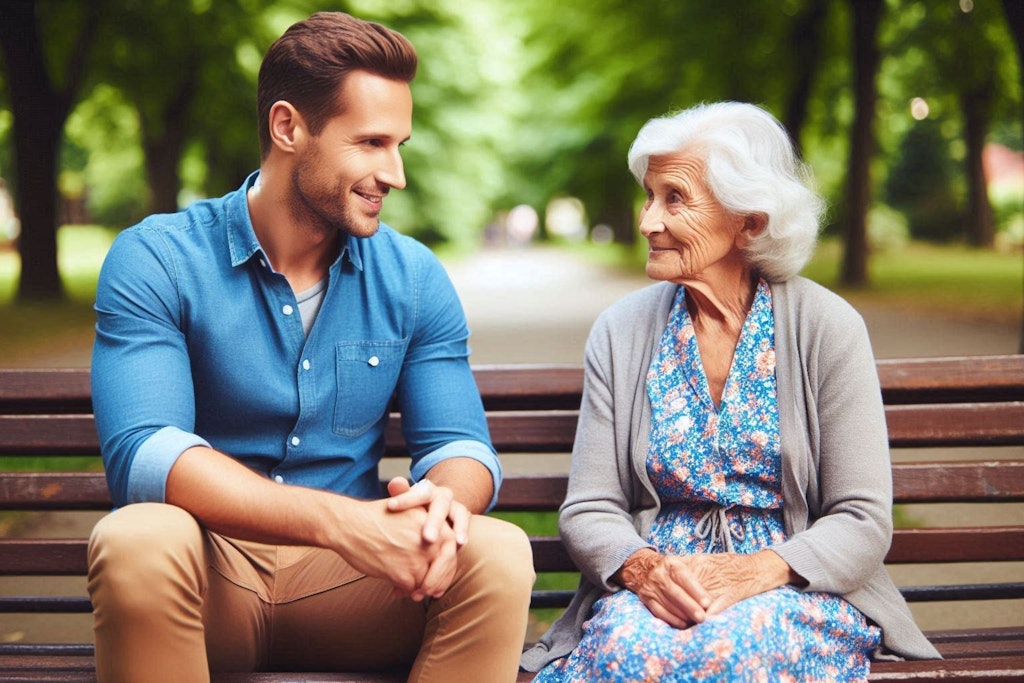Australians urged to speak up over the taboo topic of death and dying
Last updated on 11 July 2024

A new report details the challenges and inefficiencies faced by individuals during the last stage of life, exploring the gap between the desired and actual experiences during the end-of-life stage.
Too little, too late: the experience of the last stage of life across Australia comes from The Violet Initiative, a not-for-profit organisation that helps people talk about, plan for, and navigate this final stage of life.
Key points
- The report aims to understand the common experiences of people in the last 12 months of life across the community and health and aged care settings
- The number of deaths in Australia is projected to double by 2040, increasing from 183,300 in 2021-22 to over 400,000 by 2040
- Top concerns include limited support during the end-of-life stage and many Australians not having the dying experience they want
- Violet calls for several key actions, including more tools and resources to help during the end-of-life stage and increased capacity from health and aged care staff
Professor Ken Hillman AO, who endorsed the report, said dying and death have become increasingly medicalised over the last few decades. He believes society needs to reclaim the last stage of life to bring it to the forefront of conversations.
“Whether elderly and frail, or managing a terminal or life-limiting illness, the person’s preferences are not at the centre of the care decision made in that life stage, and that information is not shared with the patient, their families and their caregivers,” he said.
“Ironically, most elderly Australians and many other terminally ill people do not want to die in a hospital. Many want to be managed in their own homes. The priorities, particularly of the elderly, often do not include living longer. Instead, their needs are society-based, such as a sense of self-worth, loneliness and a community support network.”
The last stage of life is often marked by significant emotional and financial burdens for individuals and families. This includes high healthcare costs, non-beneficial treatment and challenging admin tasks involving estates and claims.
Additionally, there is an increased burden on healthcare and aged care systems. The Government spends about 11% of its Health Budget on 1% of the population who die each year, with roughly $4 billion spent on unplanned, unnecessary and unwanted hospitalisations and ambulance services.
With Australia’s projected number of deaths to potentially reach 402,800 by 2040, urgent planning and resource allocation are needed.
“Our inability to plan for a high-quality death is odd at one level, given the majority of deaths are expected and that we seem to plan for other major life events (births, weddings),” Professor Imogen Mitchell added.
“Changing the current dogma is going to be hard, and we need to think beyond palliative care as being the whole solution. It requires the community, primary care, acute care hospitals, aged care facilities, nongovernment organisations, academic partners, and state and federal policymakers to be engaged in a meaningful dialogue to realise safe and high-quality dying.”
Six key issues surround death and dying
Despite 95% of Australians experiencing the death of a significant other within the last two years, there is little widespread support to help the general public understand and navigate the final stages of someone’s life.
According to Violet, there are six key issues impacting end-of-life experiences, and they are:
- The last stage of life is a common, yet unsupported experience
- Many Australians do not have the experience they want or deserve
- Issues are compounded for elderly, frail people
- The burden is borne by family members and caregivers
- Grief and loss have enduring effects
- Data and technology remain under-utilised
Among the most concerning findings is that many Australians are still not having the experience they want at the end of their lives. This includes most people dying in hospitals despite 70% wanting to spend their final moments at home.
Less than 15% of Australians actually die at home, and without people speaking up or planning for death via an advanced care directive, it’s difficult even for health professionals to ensure wishes are followed if they’re unknown.
Kate Carnell AO, Chair, The Violet Initiative, said modern systems are not serving us well enough when it comes to providing everyone with a dignified death.
“Compassion, choice, and control are vital through the last stage of life. A system-wide approach (healthcare, social services, communities) is needed to prioritise compassion, choice, and support for the dying. While palliative care is crucial, end-of-life care goes beyond medicine, encompassing wishes, social needs, and relationships,” she said.
“Many of the resources and systems are already in place but not aligned with the needs of people. Cross-government leadership is needed to tackle fragmentation, inadequate planning, funding issues and data gaps.”
So what can society do? Violet presented six actionable responses for Australians, families, and caregivers to have the best possible end-of-life experience:
- Help people to talk about this life stage
- Provide tools and resources to build capacity
- Help with navigation
- Provide personalised and convenient support at scale
- Support health and aged care staff
- Improve information and data capture
By implementing these responses, which require buy-in from governments, health and aged care providers and individuals, they believe everyone can be supported in the last stage of life.
You can download the report in full via The Violet Initiative’s website.